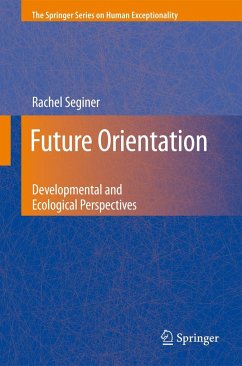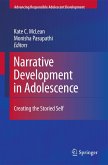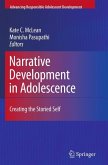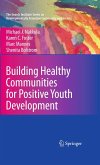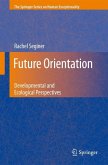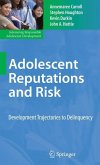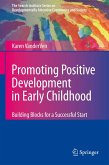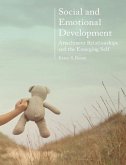Where am I going? What do I want to do with my life? Such questions are typical of—even essential to—adolescence and continue to influence individuals throughout their lifetimes. And although human beings are capable of anticipating future events even as infants, the teen years are the peak period for weighing options and setting long-range goals. Future Orientation: Development and Ecological Perspectives synthesizes a wealth of theory and empirical data to explore future thinking as both a developmental process and an individual one.
Starting with its origins in childhood, the book identifies the forces that affect this evolution, from early interactions with parents to personality traits and self-processes. Adolescents' future orientation is analyzed by its influences—a complex network of gender expectations, family and peer relationships, and cultural variables—and is, in turn, linked to developmental outcomes at school, capacity for intimacy, and adjustment in emerging adulthood and in adult life. This unique volume:
Examines future orientation as an aspect of positive psychology, focusing on the stages of preadolescence, adolescence, and emerging adulthood.
Relates future orientation with other psychological constructs relevant to this age group, including identity and self-esteem.
Offers ecological and developmental perspectives to explore the effects of family members and peer groups on future thinking.
Compares adolescent future thinking across cultures and discusses the roles of gender and gender constructs in future orientation.
Complements developmental and educational psychology as well as counseling and parental guidance courses.
Given the current climate of rapid social change, Future Orientation is an invaluable reading for researchers, clinicians, and practitioners, including child and school psychologists, psychiatrists, counselors, social workers, and others who work with young people during this critical juncture.
By contemporary I mean a present with an anticipated future, for we must do our best to overcome clinical habits which make us assume that we have done our part if we have clari?ed the past. (Erikson, 1968, pp. 30-31). The scope of time ahead which in?uences present behavior, and is therefore to be regarded as part of the present life-space, increases during development. This change in time perspective is one of the most fundamental facts of development. Adolescence seems to be a period of particularly deep change in respect to time perspective. (Lewin, 1939, p. 879). I chose to open this book with two excerpts from Erikson's and Lewin's writings because they indicate that future orientation has had its deep roots in psychol- ical thinking, and call readers' attention to the long standing interest in two f- damental issues: the motivational power of constructed future images and their development across age. More speci?cally, Erikson and Lewin's writings und- score the importanceof future thinking for in?uencing present behavior tendencies, and point out that the ability to think about the future and realize the "scope of time ahead" increase with age, and reach a special developmental signi?cance in adolescence.
Starting with its origins in childhood, the book identifies the forces that affect this evolution, from early interactions with parents to personality traits and self-processes. Adolescents' future orientation is analyzed by its influences—a complex network of gender expectations, family and peer relationships, and cultural variables—and is, in turn, linked to developmental outcomes at school, capacity for intimacy, and adjustment in emerging adulthood and in adult life. This unique volume:
Examines future orientation as an aspect of positive psychology, focusing on the stages of preadolescence, adolescence, and emerging adulthood.
Relates future orientation with other psychological constructs relevant to this age group, including identity and self-esteem.
Offers ecological and developmental perspectives to explore the effects of family members and peer groups on future thinking.
Compares adolescent future thinking across cultures and discusses the roles of gender and gender constructs in future orientation.
Complements developmental and educational psychology as well as counseling and parental guidance courses.
Given the current climate of rapid social change, Future Orientation is an invaluable reading for researchers, clinicians, and practitioners, including child and school psychologists, psychiatrists, counselors, social workers, and others who work with young people during this critical juncture.
By contemporary I mean a present with an anticipated future, for we must do our best to overcome clinical habits which make us assume that we have done our part if we have clari?ed the past. (Erikson, 1968, pp. 30-31). The scope of time ahead which in?uences present behavior, and is therefore to be regarded as part of the present life-space, increases during development. This change in time perspective is one of the most fundamental facts of development. Adolescence seems to be a period of particularly deep change in respect to time perspective. (Lewin, 1939, p. 879). I chose to open this book with two excerpts from Erikson's and Lewin's writings because they indicate that future orientation has had its deep roots in psychol- ical thinking, and call readers' attention to the long standing interest in two f- damental issues: the motivational power of constructed future images and their development across age. More speci?cally, Erikson and Lewin's writings und- score the importanceof future thinking for in?uencing present behavior tendencies, and point out that the ability to think about the future and realize the "scope of time ahead" increase with age, and reach a special developmental signi?cance in adolescence.
From the reviews: "Future orientation, its antecedents, and its outcomes are the focus of Rachel Seginer's book Future Orientation: Developmental and Ecological Perspectives. The book provides a comprehensive review of the theoretical approaches to future orientation, focusing primarily on adolescent development. ... Readers ... will find the book a useful reference on the topic of future orientation." (Shelia M. Kennison, PsycCRITIQUES, Vol. 54 (45), November, 2009)

